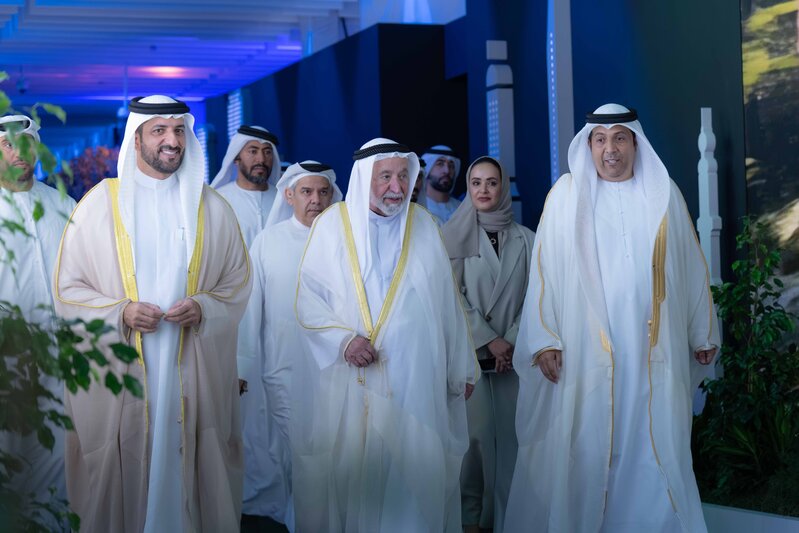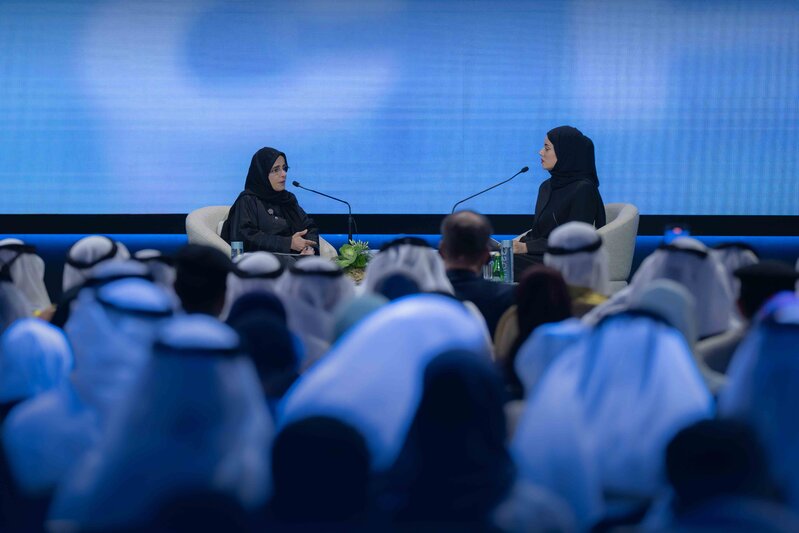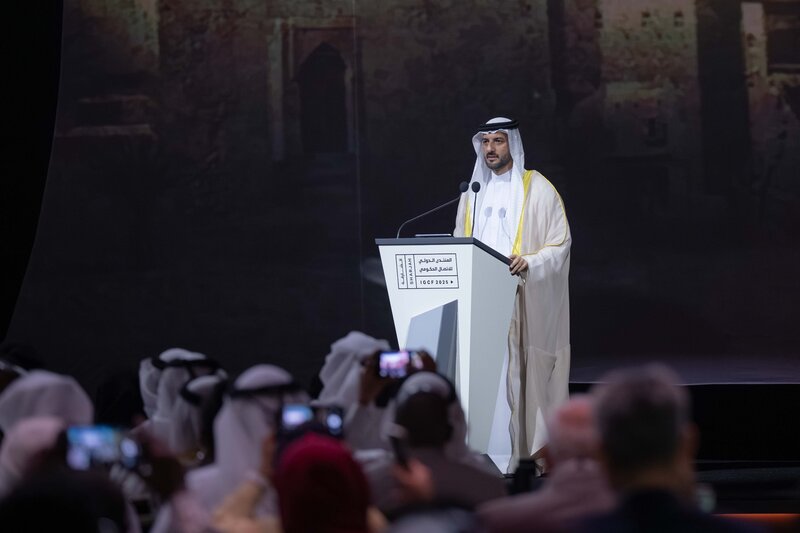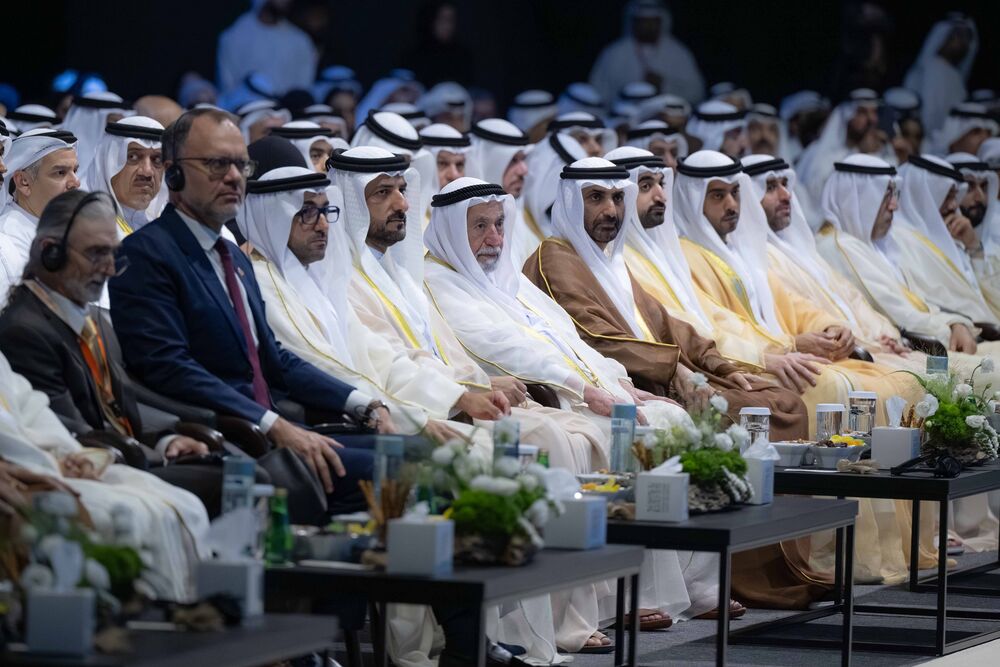His Highness Sheikh Dr. Sultan bin Mohammed Al Qasimi, Supreme Council Member and Ruler of Sharjah, inaugurated the 14th International Government Communication Forum, accompanied by H.H. Sheikh Sultan bin Ahmed bin Sultan Al Qasimi, Deputy Ruler of Sharjah and Chairman of the Sharjah Media Council, and H.H. Sheikha Jawaher bint Mohammed Al Qasimi, wife of the Ruler of Sharjah and Chairperson of the Sharjah Family and Community Council.

The opening ceremony featured two impactful keynote addresses delivered by Sal Khan, Founder and CEO of Khan Academy, and William Kamkwamba, Malawian innovator and engineer.
Both speeches presented compelling perspectives on the transformative power of education and innovation in driving societal progress and sustainable development. Sal Khan spoke about how knowledge and modern technology empower individuals and foster what he termed a “happiness economy,” while William Kamkwamba shared his inspiring personal journey of turning hardship and scarcity into opportunities for creating simple, locally inspired solutions with global resonance.
Sal Khan opened his keynote address by emphasising the importance of education and the role of knowledge-based societies. He called for shaping a future grounded in a “happiness economy” and urged the launch of a global movement to reimagine the structure of society. Khan stressed that true progress should be measured not solely by economic indicators, but by the degree of human well-being and personal fulfillment.
Khan highlighted the critical need to ensure equitable access to learning opportunities within societies, emphasising their vital role in driving development. He said, “I imagined a world where anyone, anywhere, could access knowledge and education for free—and I took it upon myself to help make that vision a reality. Education is the most powerful tool for empowerment. It’s not the end goal, but the starting point for meaningful change. It enables us to grow, understand, make informed decisions, and rise above challenges.”

The Khan Academy founder and CEO stressed that democratising knowledge creates a vital connection between governments and citizens, enabling societies to cultivate informed individuals capable of addressing global challenges. He described investment in education as the most impactful choice societies can make.
Khan concluded his inspiring address by underscoring the importance of ensuring access to basic education. He stated, “A happiness economy cannot thrive unless people feel seen, heard, and empowered. When we turn education into a force for justice, we give every individual the opportunity to learn, grow, and flourish—building a world where quality of life becomes the true measure of success.”
Malawian engineer and inventor William Kamkwamba, meanwhile, delivered an equally moving address, reflecting on his upbringing in a rural farming village in Malawi. He noted that self-reliance and confidence are essential to overcoming adversity and creating pathways to a better future.
Kamkwamba spoke about the transformative influence of education and books, which he described as the building blocks for change. He recounted how, during a severe drought that devastated his community, his determination led him to search for answers. A single book on energy, found in a city library, changed the course of his life.

With unwavering passion for learning, Kamkwamba built a wind turbine from scrap materials—an invention that brought power to his village. His work drew the attention of local officials and the media, propelling his story of resilience and creativity to international recognition.
In closing his speech, the Malawian innovator reflected on the lessons learned from his first invention and his ongoing efforts to support other innovators. He said, “I considered what could have made the journey of developing talent, creating inventions, and delivering community-driven solutions easier—like having mentors and support tools. That inspired me to establish an organisation dedicated to providing this kind of support.”
(Inputs from WAM)





